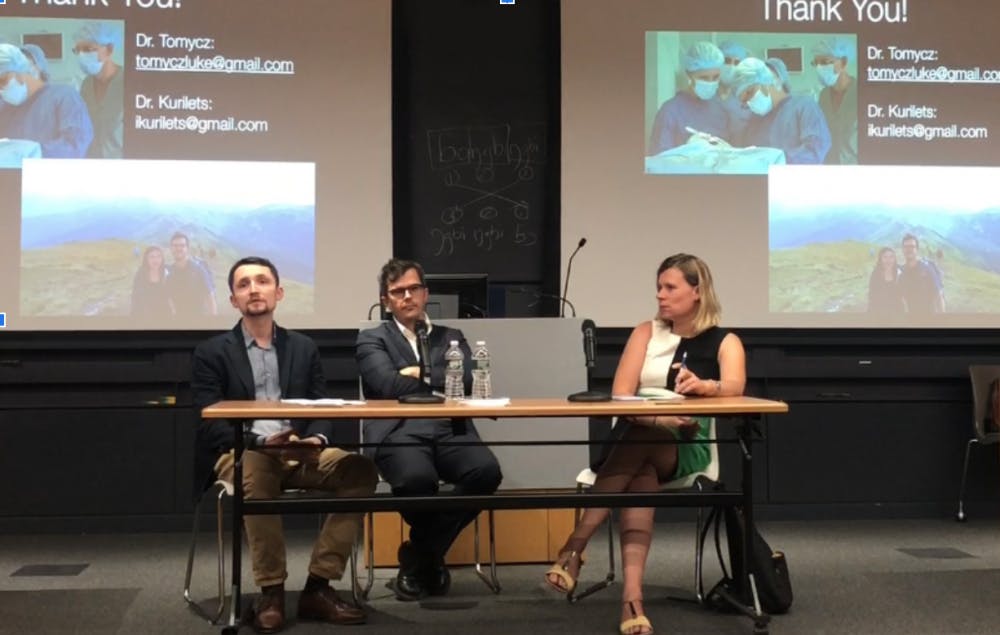For Ukraine’s medical system to thrive, how resources are spent is more important than how much is allotted, neurosurgeon Dr. Ihor Kurilets said in a lecture on Wednesday.
Kurilets, a resident at the International Neurosurgery Center in Kiev, Ukraine, and Dr. Luke Tomycz, M.D., Pediatric Neurosurgeon at Morristown Hospital, N.J., spoke at the University about international medical cooperation in Ukraine since the 2014 crisis in Crimea, as well as about the country’s corruption and the difficulty of giving aid to war-stricken regions.
Kurilets began with an introduction to the current situation in Ukraine’s medical sector. In Ukraine, the Soviet-era centralized medical system is rampant with graft — public hospitals are poorly funded, and doctors have little training and a high incentive to either leave the country or engage in corruption.
Moreover, numerous legal hurdles, such as laws that prohibit operation on cadavers, have hampered efforts to modernize.
According to Kurilets, another major issue has been the ways in which Western nations have funneled aid to Ukraine.
“Imagine you see a homeless man on the street and give him 1,000, even 3,000, dollars. It is likely that he will be back on the street within a month,” Kurilets said.
Kurilets stressed the need for foreign aid to be deployed correctly: rather than relying on the short-term capital and expertise of a few foreign doctors, local Ukranian surgeons should be encouraged to shadow them and learn to perform complex surgeries on their own.
Kurilets and Tomycz have made a substantial contribution to remedying the problem with the Razom Foundation, a Ukrainian American non-profit organization.

Razom is responsible for educating Ukrainian doctors through exchange programs, providing critical medical equipment, and subsidizing surgeries for those who cannot afford it.
Razom’s major project since 2012 has been the construction of a private hospital campus for the International Neurosurgery Center in Kiev, the first one in Ukraine to be supervised by doctors, rather than the government. The building includes two operating rooms and 40 beds. Surgeons are presently being trained through an exchange program with Rutgers University.
Tomycz, a surgeon in New Jersey, has been influential in promoting Western aid and teaching local surgeons pediatric and orthopedic surgery procedures.
“So far we have organized ten trips to Ukraine, sent students to work there, given eight didactic lectures, consulted on five hundred patients, seventy major procedures, and purchased $500,000 in medical supplies,” Tomycz explained.

Several issues have persisted, as Ukraine’s lack of preventative care makes surgeries on larger, more persistent tumors more dangerous. In addition, a Ukrainian surgeon must be present at all times during an operation performed by a foreign doctor.
Despite the difficulties, Kurilets emphasized that individuals with the will to make a difference might be more effective than any governmental organization.
“As US citizens, your accumulated knowledge and experience is the most valuable thing,” he explained.
The lecture, titled “International Medical Cooperation: The Case of Ukraine,” was cosponsored by the Razom Foundation, the Program in Russian, East European, and Eurasian Studies, and the Princeton Institute for International and Regional Studies. It was held at 4:30 p.m. in the Louis A. Simpson International Building.








